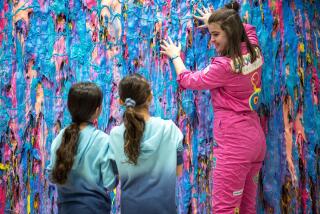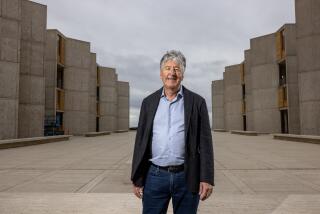Planned for La Jolla : Brewery to Aid New Allergy Institute
- Share via
With backing from the world’s fourth-largest brewery, a new biomedical research institute is being established in La Jolla to study the cellular and molecular mechanisms involved in allergies and immune system disorders.
The La Jolla Institute for Allergy and Immunology will be funded by Gemini Sciences Inc., an affiliate of Kirin Brewery Co. Ltd. of Japan. The amount of Gemini’s commitment is still being negotiated, said Craig S. Andrews, attorney for the institute.
The arrangement will be similar to one in which Kirin collaborated with Amgen Inc. of Thousand Oaks in the development of a genetically engineered version of erythropoietin, a body protein that stimulates red blood cell formation, to treat anemia, Andrews said.
Proud of Director
The institute’s founder and president, allergy researcher Dr. Makoto Nonaka, was particularly proud that the new scientific director will be Dr. Kimishigi Ishizaka, currently a professor at the Johns Hopkins University School of Medicine.
Ishizaka and his wife, Dr. Teruko Ishizaka, are the co-discoverers of immunoglobulin E, which is central to the body’s allergic responses. She also will join the institute when it begins research in late 1989, Andrews said.
Research space will be located in a yet-unspecified office building in the Torrey Pines area, Andrews said. In the meantime, Nonaka will maintain an administrative office in the Koll Center, 3333 N. Torrey Pines Court.
3rd Major Institute
The new center will bring to three the number of major immunological research institutes on the Torrey Pines Mesa. The others are the Salk Institute for Biomedical Research and the Scripps Research Institute. Although both those institutions have branched out into other biomedical studies, they both retain a strong interest in basic and applied research into immunological function in the body.
Andrews said the new institute, rather than raid its neighbors for researchers, intends to search for new scientific talent to bring into the San Diego area.
The key research staff would probably number around five Ph. D.’s when the institute opens, expanding to perhaps 10 within two years. Another 30 to 40 technical support people would be hired, he said.






